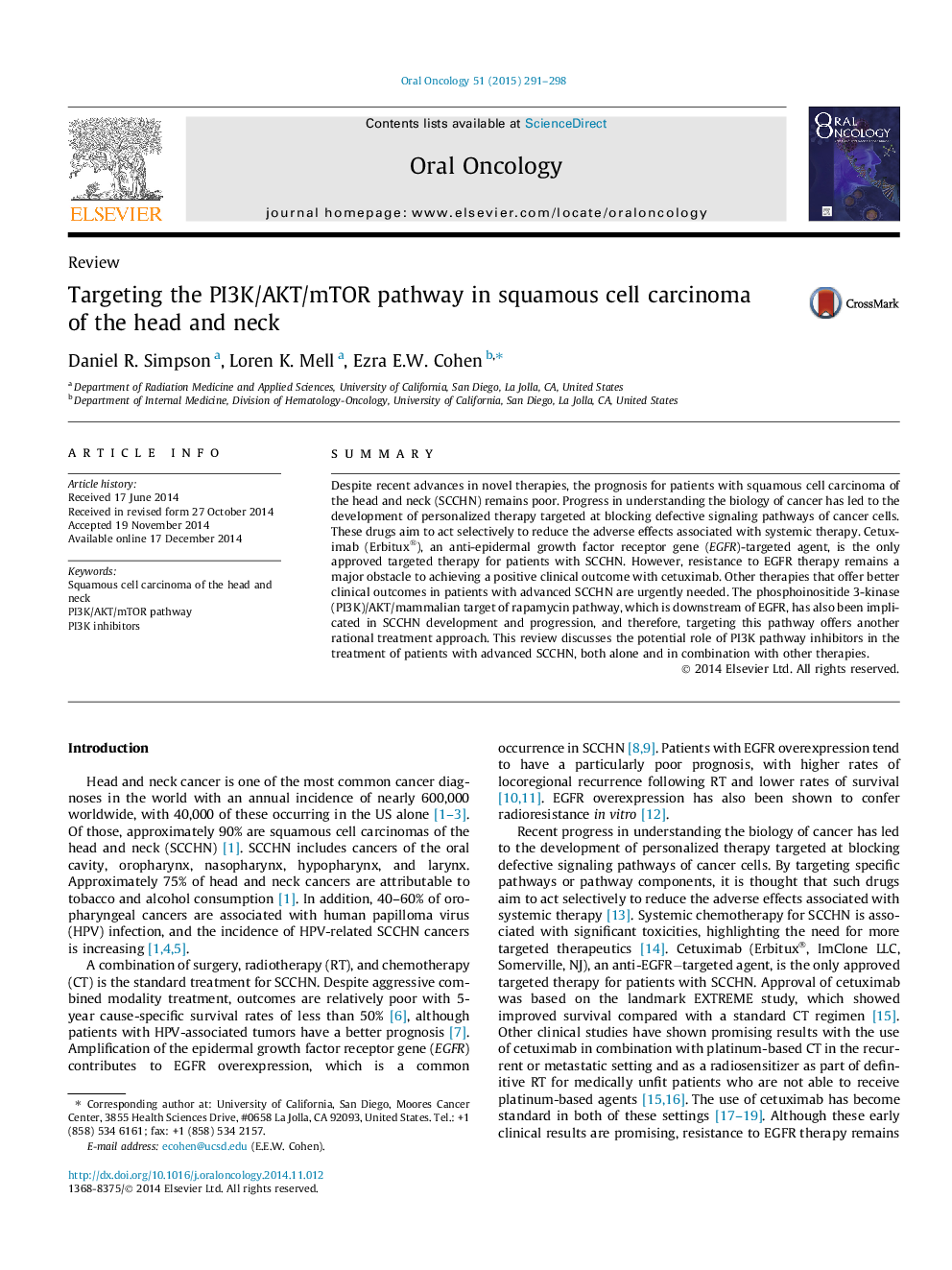| Article ID | Journal | Published Year | Pages | File Type |
|---|---|---|---|---|
| 3163957 | Oral Oncology | 2015 | 8 Pages |
SummaryDespite recent advances in novel therapies, the prognosis for patients with squamous cell carcinoma of the head and neck (SCCHN) remains poor. Progress in understanding the biology of cancer has led to the development of personalized therapy targeted at blocking defective signaling pathways of cancer cells. These drugs aim to act selectively to reduce the adverse effects associated with systemic therapy. Cetuximab (Erbitux®), an anti-epidermal growth factor receptor gene (EGFR)-targeted agent, is the only approved targeted therapy for patients with SCCHN. However, resistance to EGFR therapy remains a major obstacle to achieving a positive clinical outcome with cetuximab. Other therapies that offer better clinical outcomes in patients with advanced SCCHN are urgently needed. The phosphoinositide 3-kinase (PI3K)/AKT/mammalian target of rapamycin pathway, which is downstream of EGFR, has also been implicated in SCCHN development and progression, and therefore, targeting this pathway offers another rational treatment approach. This review discusses the potential role of PI3K pathway inhibitors in the treatment of patients with advanced SCCHN, both alone and in combination with other therapies.
